In this exclusive interview, Dr. Suboor Bakht, Director of the Heidelberg University Office for South Asia (HCSA), shares with Anannya Saraswat, Reporter (Public Sector & Leadership) at APAC Media, how Germany’s oldest university is strengthening its engagement with India.
From positioning itself as an attractive alternative for international students amidst visa concerns in several countries to aligning academic programs with industry needs, Dr. Bakht outlines Heidelberg University’s strategic efforts to ensure a holistic and supportive academic environment for Indian students.
How is Heidelberg University positioning itself to attract Indian students amid increasing visa challenges in countries like the UK, the US, and Canada?
India is of strategic importance to Heidelberg University. The university started its office in Delhi in 1962 under the Cultural Exchange Agreement with the Government of India, with a focus on South Asian studies. In the year 2009, the university broadened its activities to enhance academic cooperations and exchanges for its 13 faculties and 100-plus institutions across the university, i.e., in Life Sciences, Medicine, Natural Sciences, Law, Social Sciences, and Humanities.
In view of the increasing visa challenges in popular English-speaking countries such as the UK, the US, Australia, and Canada, Heidelberg University is actively positioning itself as an attractive alternative for students and researchers from India. The university is leveraging its legacy, excellent scientific and research landscape, international character, openness, high-quality & affordable education, post-study employment opportunities, and supportive environment for international students and scientists. The India Office of Heidelberg University works closely with the Academic Evaluation Center (APS), the German Embassy, and the German Consulates across India so as to facilitate fast visas for students and scientists visiting Germany.
Could you highlight some of the most popular courses among Indian students at Heidelberg University? How do these programs align with current and future industry demands, both globally and in emerging markets like India?
Heidelberg University currently offers 14 master’s programmes in English. The university is known for its strong master’s programs such as, but not limited to Data and Computer Science, Physics, Molecular Biosciences, Molecular Biotechnology, Molecular Systems Science and Engineering (MSSE), Biomedical Engineering, Computational Linguistics, Mathematics of Machine Learning and Data Science, Scientific Computing, Masters in International Health, Matter to Life as part of the Max Planck School, Masters in Economics, English Studies, and Computer Engineering. These subjects’ areas are in line with the demands from international and Indian industry.
Moreover, expertise in STEM and healthcare is the worldwide focus. Heidelberg University’s study and research programs fit well into these demands. India is an emerging market with reasonable growth in technology, healthcare, and other STEM sectors. This growth is creating demand for skilled professionals, especially those with degrees from world-renowned institutions such as Heidelberg. Furthermore, India’s legal and cultural landscape requires expertise in law and humanities, which are also strongholds of the university.
Is the university working with industry partners in designing or updating curricula to ensure relevance and employability?
Heidelberg University fosters active collaborations with industry partners to transfer research outcomes and data into applied applications and for the society at large. The university has various strategic research collaborations with corporations such as SAP, Roche Diagnostics, and BASF.
The university fosters “Industry-on-Campus” projects, where fundamental and translational research dovetail academia and industrial interests. Through academia-industry collaboration, the university actively seeks to transfer its research findings to industry and promote entrepreneurship and innovation. Additionally, the university participates in various programs like GO-Bio and EXIST that encourage technology transfer and spin-offs.
As the transfer agency of Heidelberg University, hei_INNOVATION stands for the transfer of knowledge and technology from university research results to society. The central concern is to coordinate transfer activities across the university, to make contact with specialised transfer departments of non-university institutions as well as industrial partners, and to make scientific innovation services usable for society. hei_INNOVATION is a Rectorate’s Department of the Vice-Rector for Innovation and Transfer and was established as part of Heidelberg University’s Excellence Strategy.
What specific support systems are in place to help Indian students adapt to life and studies in Germany? Are there any scholarships, mentorship programs, or language support services specially tailored for Indian students?
Heidelberg University offers various support systems for international students and scientists to help their successful transition into Germany.
The support structures offered by the university include Buddy Programs, the International Relations Office, the Graduate Academy, Welcome Centre, and German language courses. The University Language Center (ZSL) offers language courses and resources to improve language skills, while the International Relations Office provides information and support regarding language learning options. The Heidelberg Indian Students Association (HISA) is a student organization in Heidelberg that provides support and facilitates interactions among Indian students. In addition to this, at Heidelberg, several scholarship opportunities and mentorship programs are offered for students.
In cooperation with the departments of the university, the International Relations Office offers a Buddy Program for international students. As part of this initiative, the existing students at Heidelberg University advise and support the newly arrived international students on important issues such as accommodation, extra-curricular activities, and other options available for students. This, in turn, helps promote relations between German and international students. The Graduate Academy at Heidelberg University supports Ph.D. students, and the Welcome Centre supports post-docs and scientists and ensures a smooth transition.
How does Heidelberg University support international students in securing post-study work opportunities? Are there dedicated career services that help Indian students connect with employers in Germany?
Heidelberg University provides support to international students with post-study work prospects in Germany. These services include career guidance, internship support, and networking opportunities.
The Career Service offers orientation, practical knowledge, and decision-making aids for one’s career prospects. Students, graduates, and doctoral candidates can access individual career advice, coaching, and the CareerMatch job exchange, as well as network with potential employers at career fairs. Similarly, Heidelberg University supports students in finding and completing internships, which can be a crucial step in securing post-study employment. They offer advice on how to integrate internships into study plans and provide resources for finding relevant opportunities. For example, Heidelberg Alumni International (HAI) members offer internships abroad and at home for students of Heidelberg University. The internships are offered in institutions where the alumni are working themselves or with which they maintain close contacts.
How has Heidelberg University integrated digital technologies into teaching, research, and student services? What role does hybrid or online learning play in the university’s long-term academic delivery strategy, especially post-pandemic?
Heidelberg University has extensively integrated digital technologies across teaching, research, and student services. We utilize a central learning platform (Moodle) with features like heiCAST (video platform) and heiCONF (online conferencing). Researchers have access to high-performance computing resources and specialized IT support.
Additionally, the university supports digital humanities research through the Heidelberg Center for Digital Humanities (HCDH) and provides tools for digital collaboration and data management.
What kind of partnerships, if any, has Heidelberg University undertaken with Indian institutions or education bodies?
Heidelberg University has a strong and multifaceted partnership network with various Indian institutions of higher education and research. These collaborations span research, training, faculty and student exchange programs, research internships, master’s theses, and joint Ph.D. supervision, to name some.
As of today, Heidelberg University has more than 57 active Indo-German research partnerships that span across India. The partnerships span across institutions like the IITs, IISERs, AIIMS, CMC Vellore, Tata Medical Centre, IISc, Delhi University, Jawaharlal Nehru University, Mumbai University, and University of Hyderabad, to name some.
Heidelberg University has an active Heidelberg India Research Internship programme that accepts students from across India for research internships and a Guest Researcher programme that accepts young researchers and established scientists to spend time at the university. Every year, about 250 international scientists visit Heidelberg. As far as Erasmus exchanges are concerned, Heidelberg has a staggering 800-plus exchanges per year.
What advice would you give to Indian students who are considering Germany as a study destination but are unsure due to cultural or language barriers?
Those considering Germany as a study destination should do thorough research before they make a decision. They should start by researching programs and universities, understanding the German education system, and checking admission requirements. It is always better to learn German up to the B1 level, as it will help to integrate into the society and understand things better in daily life.
Those considering taking up courses offered in the German language should aim for the C1 level. It is equally important to secure APS certification and apply for a visa well ahead of time. Culturally, the students should read about the German culture, traditions, food, etc, so as to get better merged into the society. The Germans are, in general, polite and helpful. So be open to asking questions and seeking help whenever you feel the need.


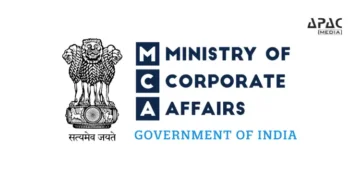








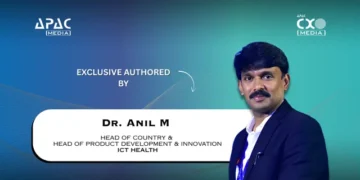


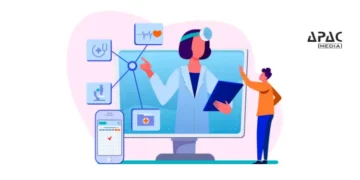




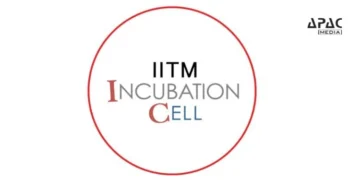


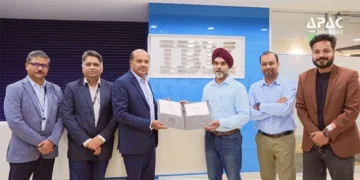
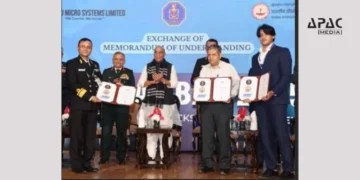
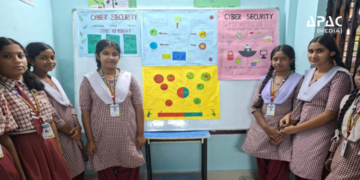



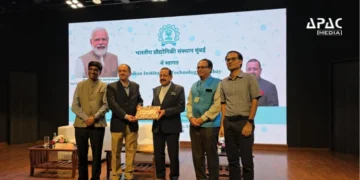
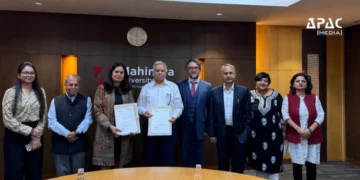

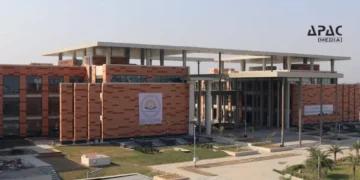



















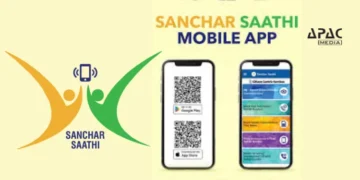


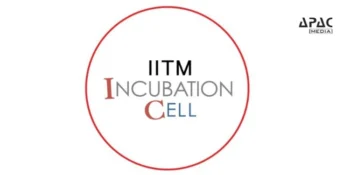




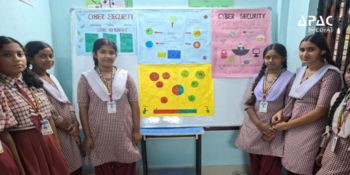







Discussion about this post